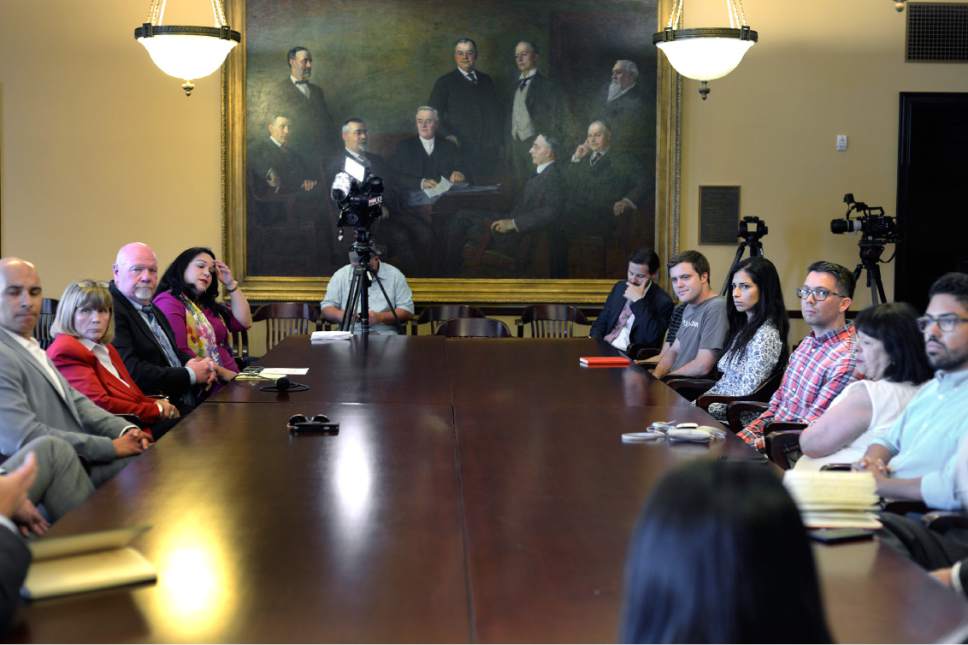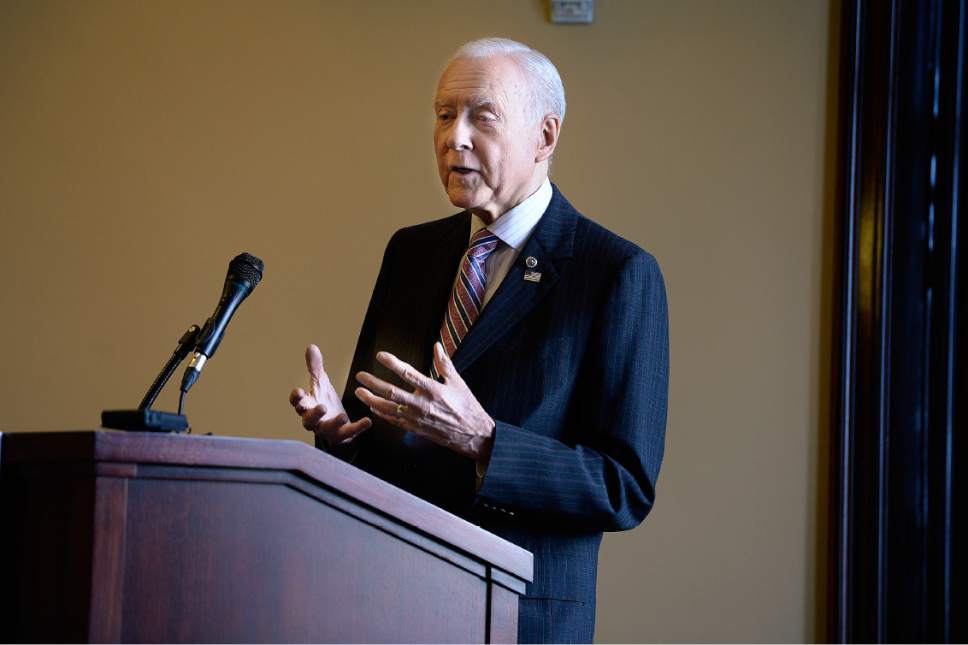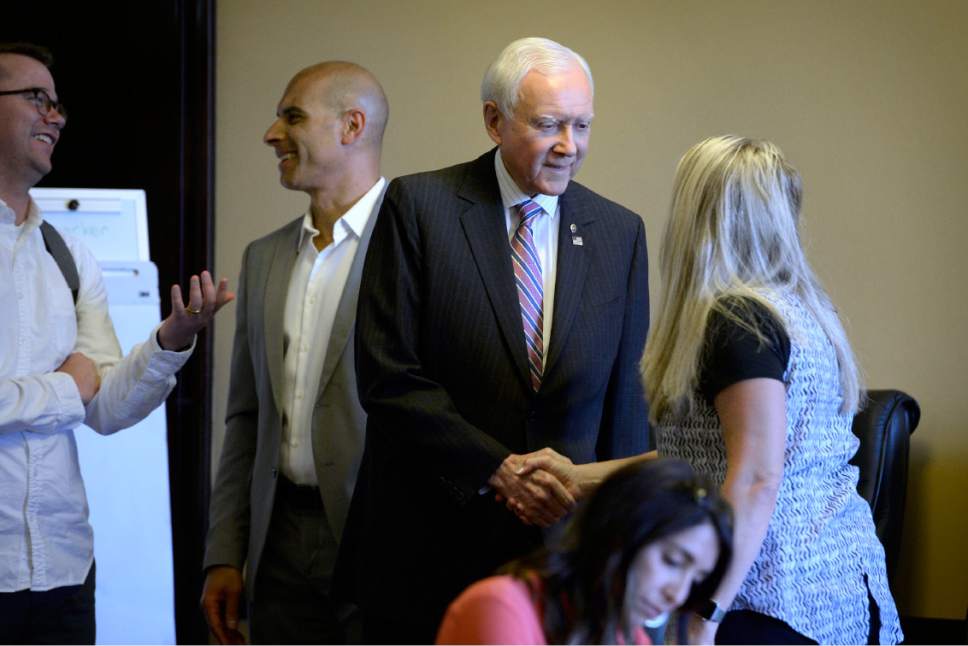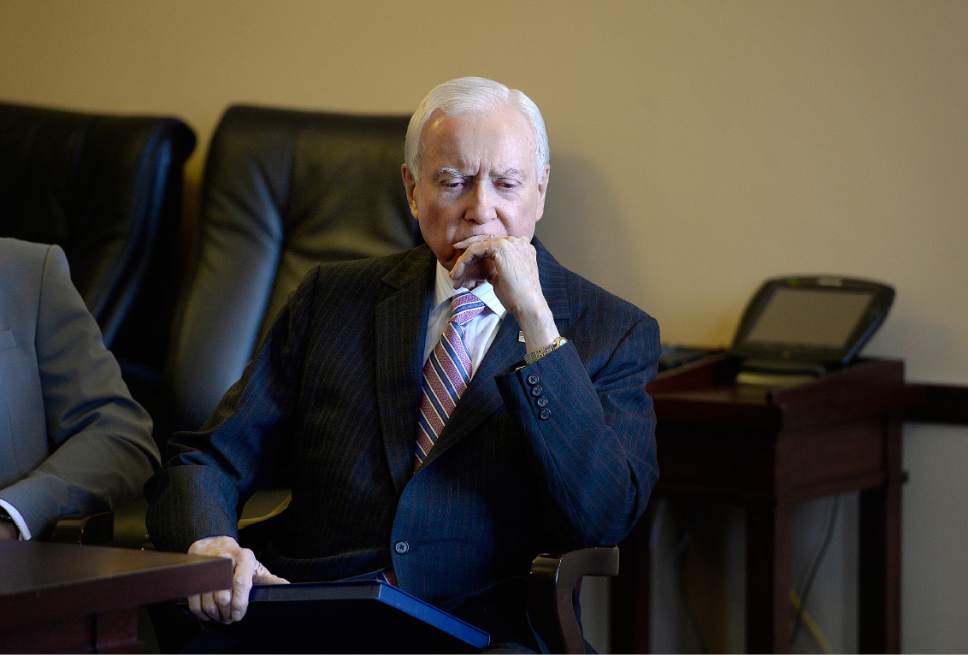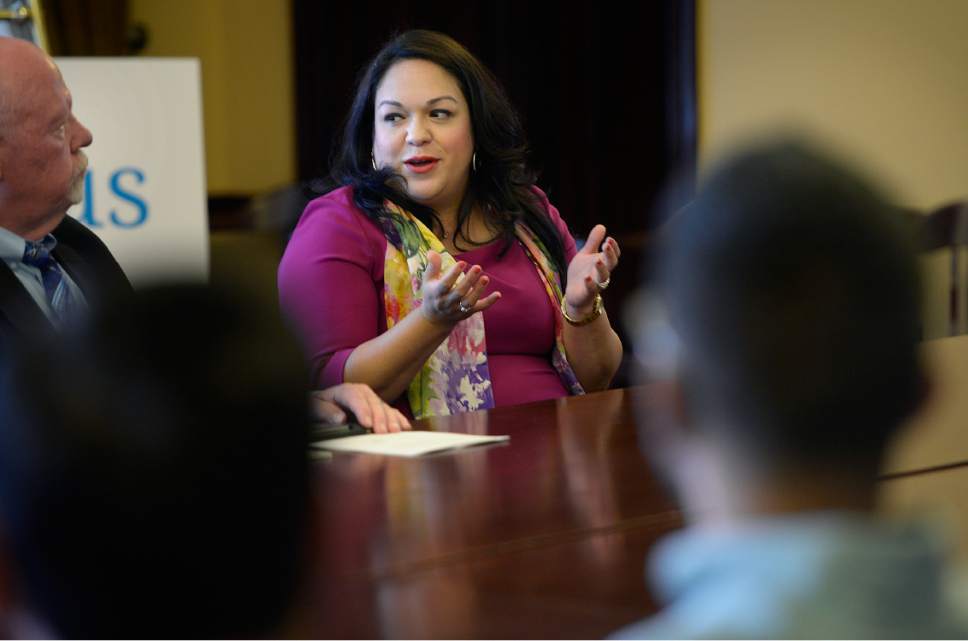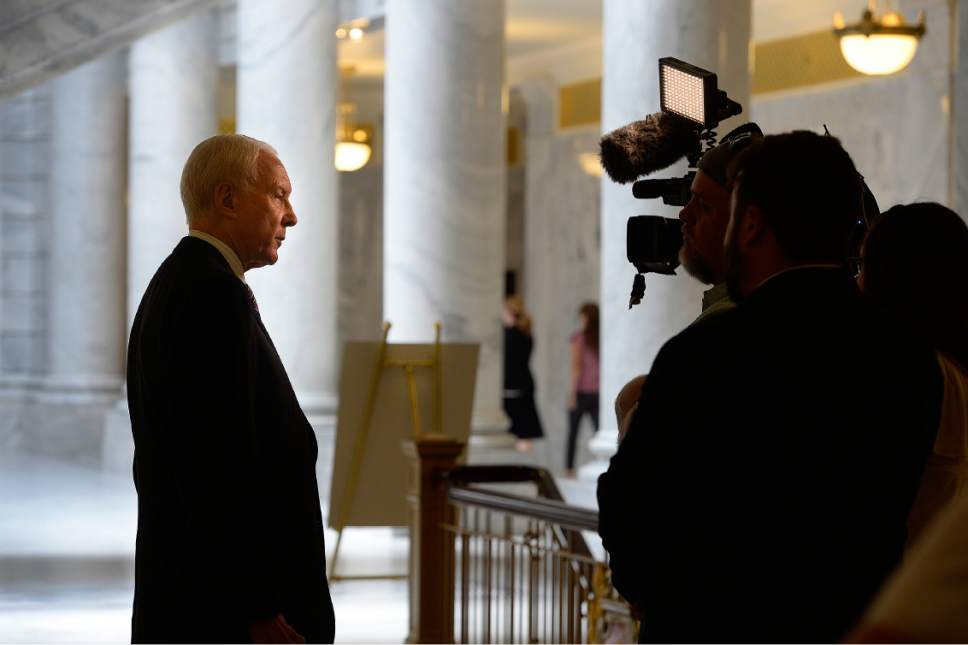This is an archived article that was published on sltrib.com in 2017, and information in the article may be outdated. It is provided only for personal research purposes and may not be reprinted.
Immigration reform is an issue fraught with partisan bickering, where "common ground seems nowhere in sight," Sen. Orrin Hatch said Thursday at the launch of a bipartisan coalition looking to support solutions.
Luckily, Hatch thinks he's found an area where everyone can agree: growing the economy.
"Finding common ground on immigration is difficult, but difficult does not mean impossible," he said in his opening remarks at the debut of the FWD.us Utah Coalition. "In fact, there's at least one area in which there is substantial common ground between the two parties, and that's high-skilled immigration."
Growing the economy is at the heart of FWD.us, a national organization founded by Mark Zuckerberg, Bill Gates and other leaders in the tech industry. The organization launched its Utah Coalition at the state Capitol on Thursday amid a small gathering of lawmakers, tech industry leaders and business owners.
The Utah Coalition looks to bring together community members in support of the national organization's goals of promoting "smart border security" and a pathway to citizenship for the 11 million undocumented immigrants currently in the United States.
FWD.us estimates on its website that the result of such reform would be to reduce the federal deficit by $897 billion over 20 years and create 3.22 million jobs by 2024.
For Hatch, immigration reform is an important way to establish a technology industry in Utah's "Silicon Slopes" and for the nation to stay technologically competitive in an increasingly globalized world. He also cited a statistic from the National Foundation for American Policy that immigrants have played a founding role in 51 percent of billion-dollar startups in the United States as a reason to keep talent in the country.
"We have people who are educated in our society and could be great contributors to our society," he told The Tribune. "We should stop pushing them out and we should provide an H1-B visa for them so they can stay and work in our country. Why not get the benefit of all the education we've given to them? Why force them out of the country so they can go help other countries in competition with our own?"
Hatch said he plans to introduce a bill to reform H1-B visas, which allow U.S. employers to temporarily employ foreign workers in specialty occupations. Hatch said he expects to find a willing and helpful partner with immigration reform in President Donald Trump, though many have expressed fear over his rhetoric around the issue.
"[Trump's] evolving on immigration," Hatch said. "First, he was going to build a huge wall, and nobody knew what he meant by 'wall.' Now he's talking about a high-tech wall that will keep people out. And I think he's sincere about that. But he also realizes the importance of high-tech immigration."
Todd Schulte, president of FWD.us, said the organization's tactics have changed under Trump's administration but noted the group's principal goal of "fixing" America's broken immigration system has remained the same.
"As we are looking ahead to the future, we think that it's great to hear Senator Hatch talking about how he's going to be introducing high-skill legislation," Schulte said. "I think that's critical to make it easier to bring the world's best and brightest to the United States, as well as protect American jobs."
This is the first time Hatch has worked directly with FWD.us, though he's crossed paths with the organization before. In 2013, the group launched an ad campaign hoping to convince Republicans to support immigration reform. The ad aired in Utah was believed to target Hatch, who was seen as a swing vote on the bipartisan bill. Hatch did vote in favor of the bill, which later died in the House.
Though Hatch noted immigration reform is one of the most politically divisive issues in the country, Utah has long been welcoming to immigrants — likely because more than 60 percent of its residents are Mormon, whose ancestors faced persecution until settling in the Salt Lake Valley. More than 60,000 refugees have been settled in the state since 1970, with about 1,200 arriving annually in recent years.
During a panel discussion following Hatch's remarks, state Sen. Luz Escamilla, D-Salt Lake City, lauded the efforts of Utah leaders on immigration.
"I'm personally very proud of the state of Utah; we've done really good things," she said. "We are actually a role model in other states, and I say that as a member of the minority party in this Legislature, where we struggle with other issues. On immigration, my colleagues on both sides of the aisle have been very clear: We're not about punishing people."
Ultimately, she encouraged people to remember that the issue isn't as one-dimensional as some may try to make it.
"It is a social issue, but it's also an issue of fairness. It's an issue of justice and at the end really will reflect profoundly on who we are as a nation for generations to come."


